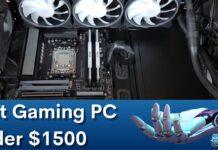Building a gaming PC that can support 1440p and 4K gaming for $2000 isn’t tricky, but finding the proper components in today’s saturated markets can be a nuance. Therefore, based on the budget, here is my best gaming PC build under $2000 that provides impressive performance, doesn’t thermal throttle, and provides decent upgradability.
Here are our hardware picks for the best gaming PC build under $2000:
We’re thrilled to launch our free Personalized PC Build Recommendation Service! All you need to do is fill out a form with your needs, and Malik Sajjad, our editor-in-chief, will use his years of experience to give you a custom recommendation.
– Sameed Hussain
Have a different budget? You can check our other builds:
- Best Gaming PC Build Under $500
- Best Gaming PC Build Under $1000
- Best Gaming PC Build Under $1500
- Best Gaming PC Build Under $5000
Best Gaming PC Under $2000
These are my recommendations for the best gaming PC build under $2000:
- Best $2000 Gaming PC Build Processor: AMD Ryzen 7 7800X3D
- Best $2000 Gaming PC Build Motherboard: MSI MAG B650 Tomahawk WiFi
- Best $2000 Gaming PC Build CPU Cooler: ARCTIC Liquid Freezer III 360 A-RGB
- Best $2000 Gaming PC Build RAM: Kingston Fury Renegade 6400MT/s CL32 32GB DDR5
- Best $2000 Gaming PC Build Storage: TEAMGROUP MP44 2TB
- Best $2000 Gaming PC Build Graphics Card: Gigabyte GeForce RTX 4070 Ti Gaming OC
- Best $2000 Gaming PC Build Power Supply: Corsair RM850x SHIFT
- Best $2000 Gaming PC Build Case: Corsair 4000D Airflow
AMD Ryzen 7 7800X3D
Best $2000 Gaming PC Build Processor
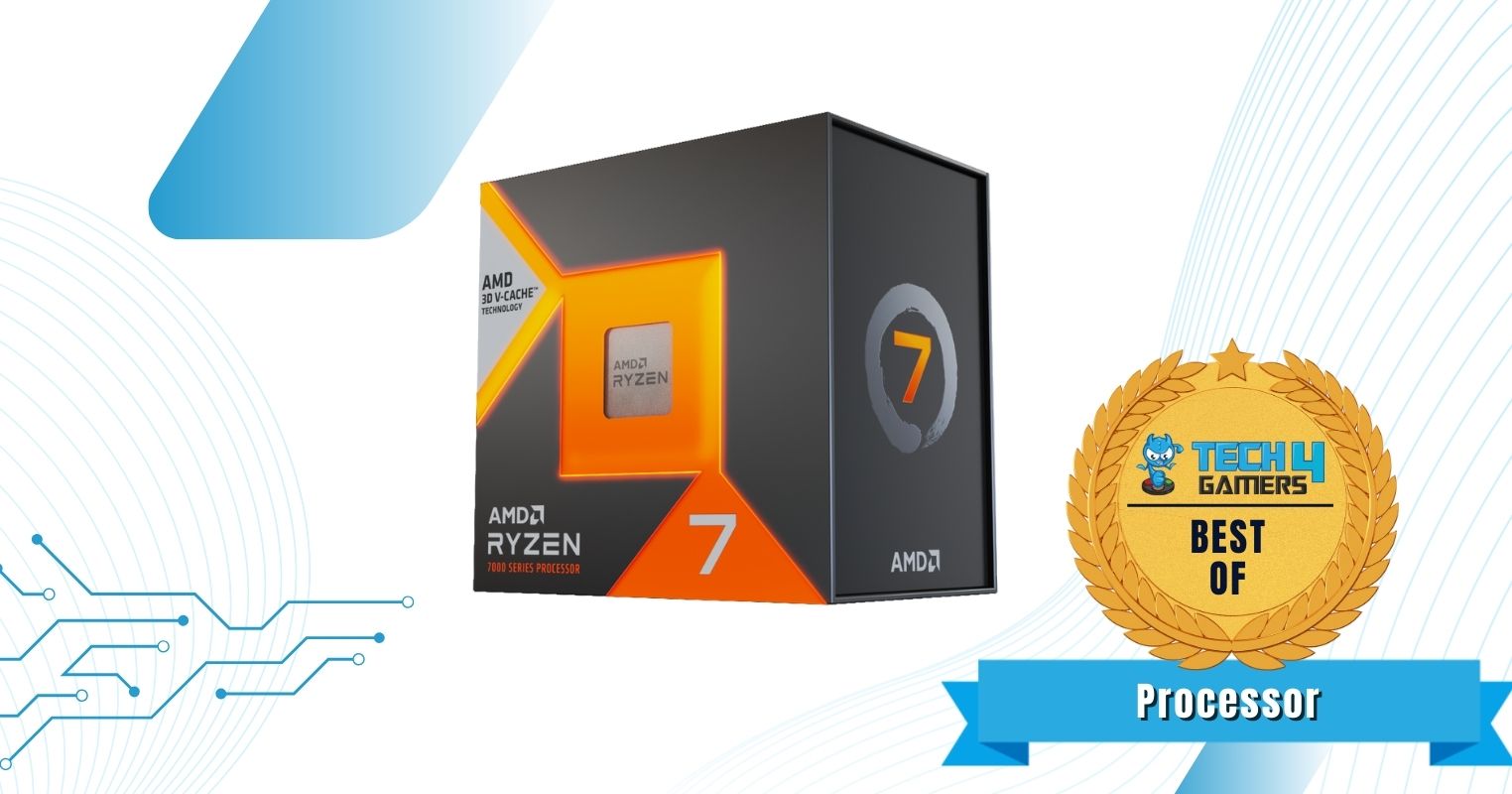
Specifications: Socket: AM5 | Architecture: Zen 4 | Cores: 8 | Threads: 16 | Base Clock: 4.2GHz | Boost Clock: 5.0GHz | L3 Cache: 96MB | TDP: 120W
Pros
- Outstanding gaming performance
- Unbelievable 96MB L3 cache
- Relatively efficient
- Great value
Cons
- No overclocking support
- Runs hotter
The most important component for video editing is that I usually recommend sparing a decent portion of your budget for the CPU. Therefore, for a $2000 gaming PC, the AMD Ryzen 7 7800X3D is a perfect fit, featuring 8 cores, 16 threads, and remarkable 5.0GHz boost clocks.
Moreover, the CPU provides emasculate gaming performance because its 96MB L3 cache reduces map load times in heavier games. However, the CPU doesn’t promote overclocking, so I don’t recommend trying. The stock performance is good enough for its price range, so you won’t have to worry.
Nevertheless, you’ll have to spend more on the CPU cooler as the Ryzen 7 7800X3D needs more cooling to keep the temperatures at bay due to its higher 120W TDP. Thus, with the latest ARCTIC 360mm AIO, I faced no thermal throttling or issues during my testing, allowing me to gain remarkable FPS at 1440p and 4K resolutions.
- Best RAM For Ryzen 7 7800X3D
- Best Motherboard For Ryzen 7 7800X3D
- Best Cooler For Ryzen 7 7800X3D
- Best GPU For Ryzen 7 7800X3D
- How To Buy The Right CPU
MSI MAG B650 Tomahawk WiFi
Best $2000 Gaming PC Build Motherboard
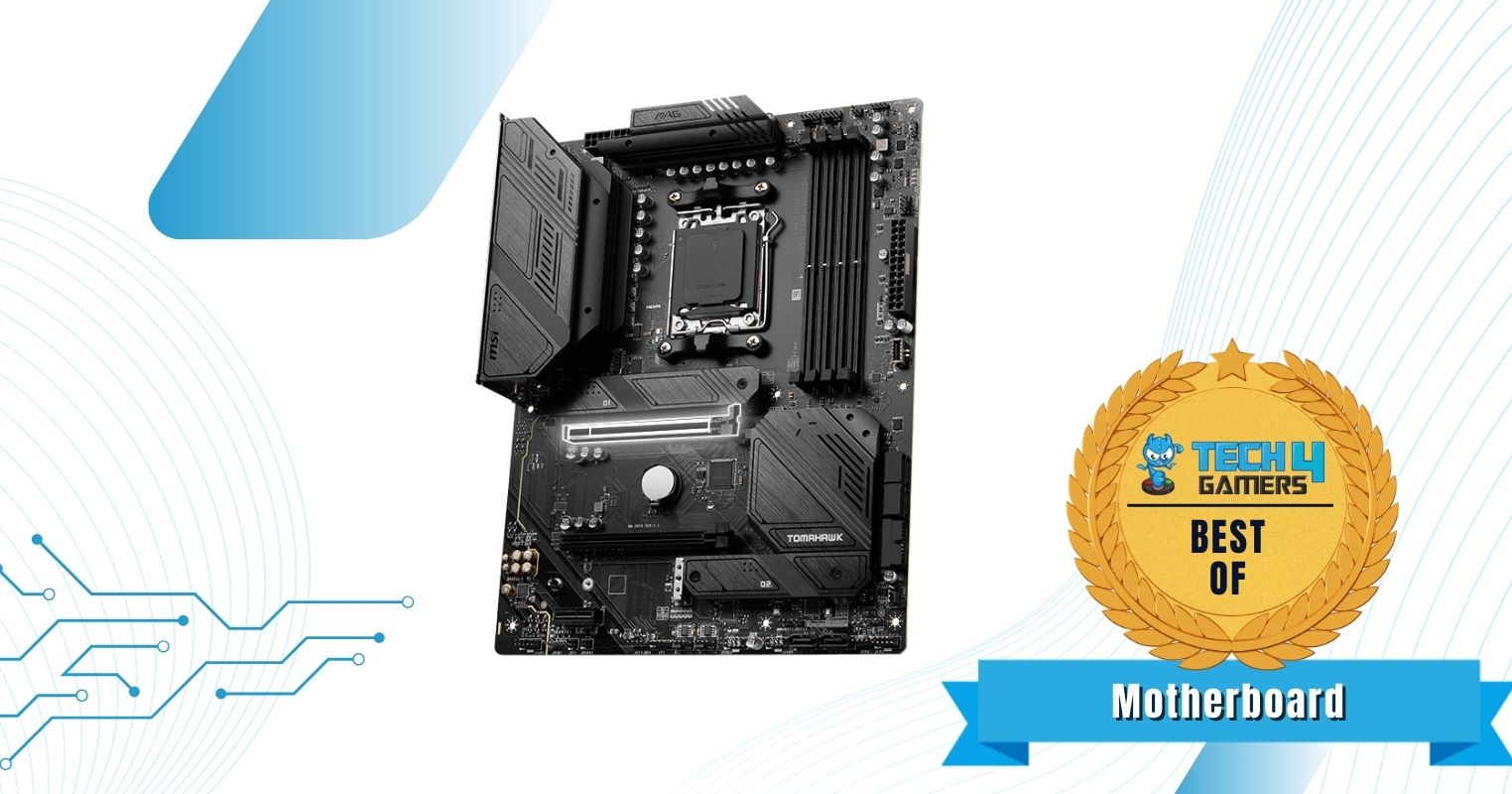
Specifications: Chipset: B650 | Form Factor: ATX | VRM: 14+2 | Memory Support: 4x DIMM 256GB DDR5 | USB Ports: 10x Rear, 7x Front | Display Outputs: 1x HDMI, 1x DisplayPort | Storage: 3x M.2, 6x SATA 6Gb/s
Pros
- Solid 14+2+1 VRM design
- Plenty storage options
- Remarkable cooling features
- Sturdy build quality
- Decent dark aesthetics
Cons
- No RGB
- Slightly pricier
You won’t have to go all-out with the motherboard because you won’t be overclocking the Ryzen 7 7800X3D CPU. Thus, I installed the MSI MAG B650 Tomahawk WiFi motherboard, which promises decent connectivity options, a robust 14+2 VRM phase, and good storage connectivity.
Moreover, the motherboard is compatible with faster DDR5 RAM kits, so you can get better video editing and gaming performance without having any compatibility issues or worries. For its price, the MSI MAG B650 Tomahawk WiFi is a great find for a $2000 gaming PC build.
ARCTIC Liquid Freezer III 360 A-RGB
Best $2000 Gaming PC Build CPU Cooler
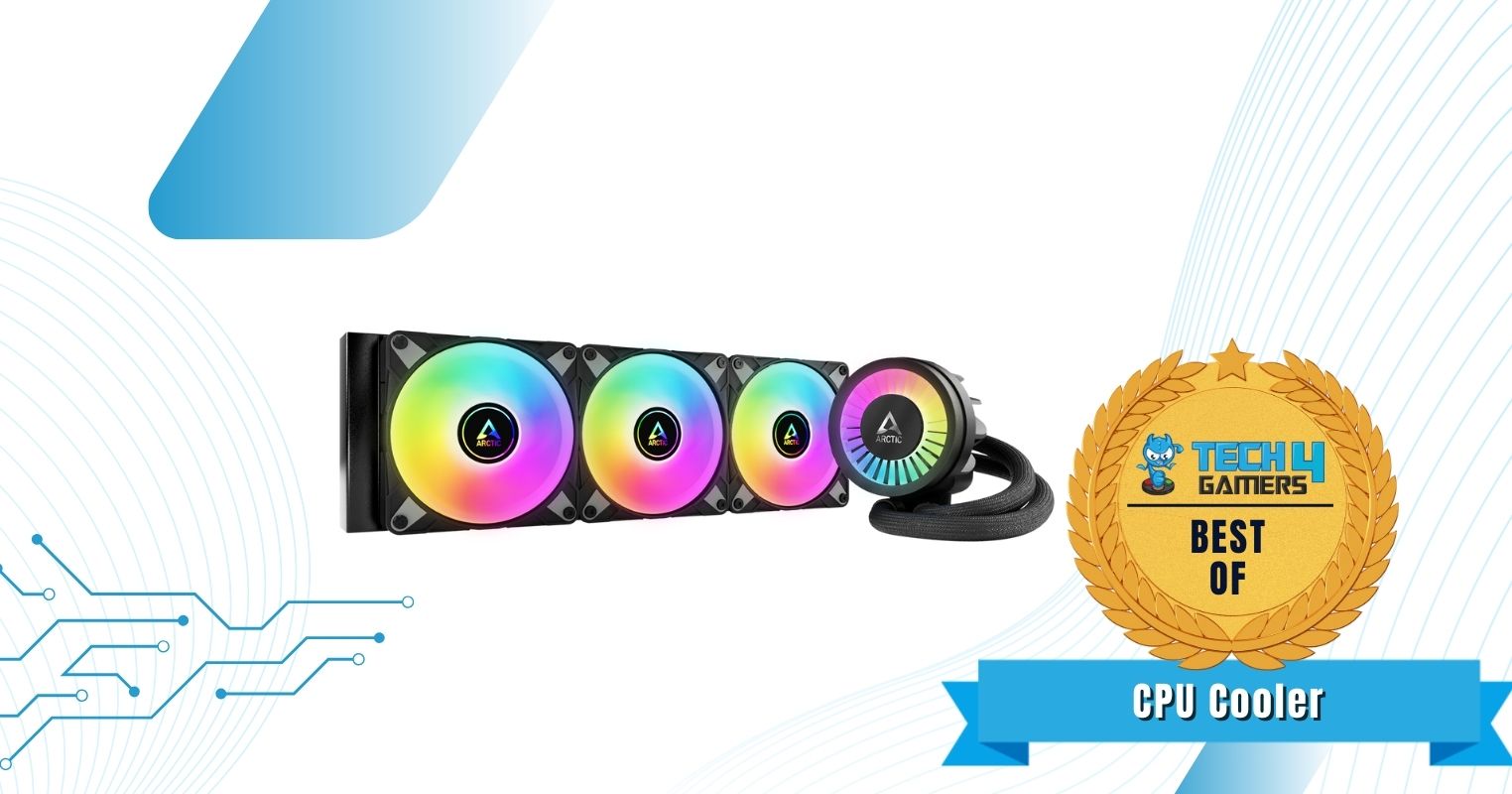
Specifications: Type: 360mm AIO Liquid Cooler | Fans: 3x P12 PWM PST A-RGB Fans | Fan Speed: 200 — 2,000RPM | Noise: 309 NNPI | Dimensions: 398 x 120 x 38mm | Socket Compatibility: Intel: LGA 1700, 1851 AMD: AM4, AM5 | RGB: Yes
Pros
- Unmatched thermal performance
- Integrated cable management
- A-RGB lighting on the pump cover
- Longer 6-year warranty
- Supports LGA 1851
Cons
- Thicker NVMe heatsinks may block tube connection
- Bent fins
Because I have installed a powerful processor, it’s only natural to complement it with a stronger CPU cooler. That’s where the latest ARCTIC Liquid Freezer III 360 A-RGB AIO cooler comes in with its 3x 120mm PWM fans running at a marvelous 2,000RPM speed to provide incredible cooling performance.
During my testing, the AIO cooler helped reduce any thermal throttling issues and didn’t bottleneck the CPU at all. While the fans have a slower 48.82CFM, you won’t have to worry about airflow thanks to the PC case that promotes airflow. You won’t have to worry about any leaks either, thanks to the robust build quality the cooler provides.
Thus, the ARCTIC Liquid Freezer III 360 A-RGB AIO cooler is a must-have for a $2000 gaming PC. Not only does the AIO cooler improve the PC’s thermals, but it also provides beautiful aesthetics with immersive RGB lighting on the fans and the pump. The in-house pump design also creates an exotic look not found in many coolers.
- Read Our ARCTIC Liquid Freezer III 360 A-RGB AIO Cooler Review
- Best 360mm AIO Coolers
- How To Buy The Right CPU Cooler
Kingston Fury Renegade 6,400MHz
Best $2000 Gaming PC Build RAM
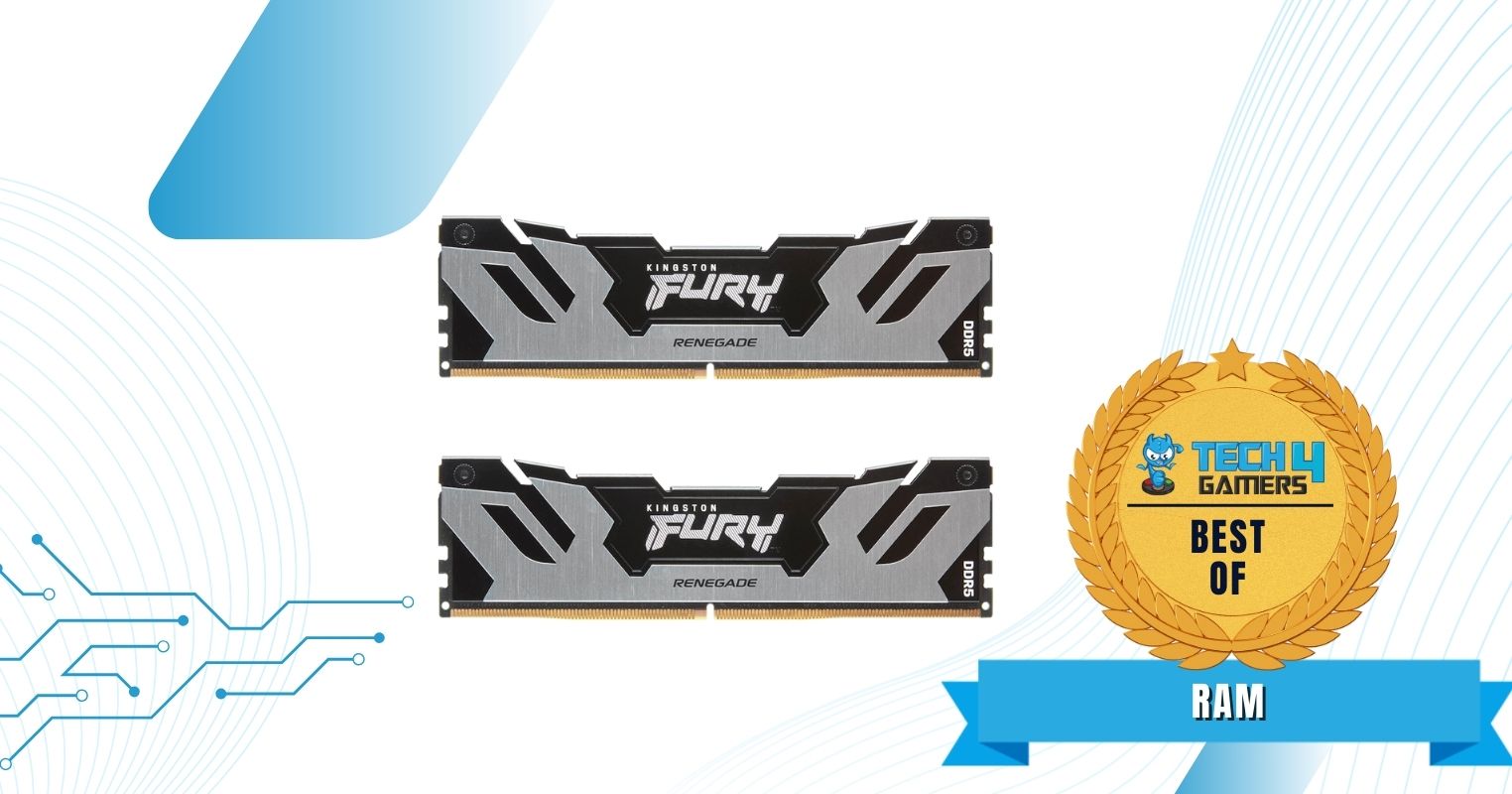
Specifications: Memory Type: DDR5 | Capacity: 32GB (2x 16GB) | Frequency: 6,400MHz | Latency: CL32 | Latency (Nanoseconds): 10ns | Input Voltage: 1.40 | RGB: No
Pros
- Great performance
- Low profile design
- Decent overclocking capabilities
- Fast latency
Cons
- Could be more affordable
- No RGB
The Kingston Fury Renegade 6,400MHz 32GB DDR5 RAM kit should prove helpful if you’re mainly after gaming and productivity performance. With a higher frequency and tighter CAS timings, the RAM kit showed incredible performance while I was testing it in the $2,000 gaming PC build.
Moreover, If that’s not enough, you should know that with a simple manual tweak, you can gain a 400MHz frequency boost without changing the voltage or latencies. Hence, with easier overclocking capabilities, the RAM kit is a must-have for an expensive PC build.
However, I disliked the absence of RGB lighting from such a kit. While it’s not a big issue, many gamers might want more RGB lighting in their PC, so you should also consider that.
- Read Our Kingston Fury Renegade 6,400MHz 32GB DDR5 RAM Kit Review
- Best DDR5 RAM Kits
- How To Buy The Right RAM
TEAMGROUP MP44 2TB
Best $2000 Gaming PC Build Storage
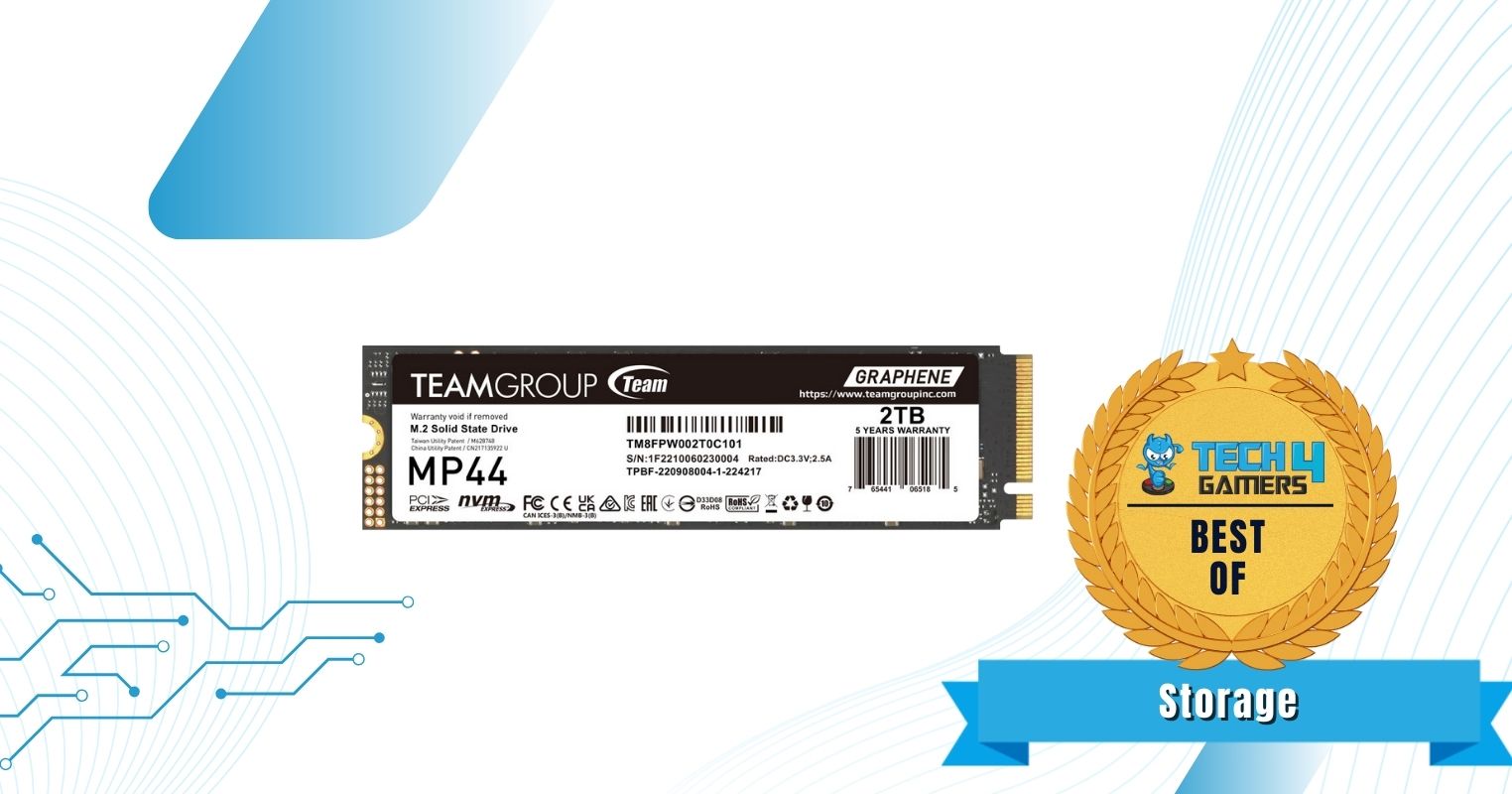
Specifications: Capacity: 2TB | Interface: NVMe (PCIe Gen-4) | Sequential Read Performance: 7,400MB/s | Sequential Write Performance: 7,000MB/s | Warranty: Limited 5 Years
Pros
- Superb 7,400MB/s read speed
- Fast 7,000MB/s write speed
- Longer warranty period
- Lots of storage capacity
Cons
- Runs warm
Having separate storage devices has pros, but you can install a larger NVMe M.2 SSD and call it a day. So, to make the installation process easier, I opted for the TEAMGROUP MP44 2TB NVMe M.2 SSD that will serve as the primary OS storage and other media storage such as essential software for your productivity tasks.
With its faster read and write speeds, the SSD helped me reduce loading times by simply installing Windows 11 on it. Moreover, games such as Fortnite and Elden Ring saw remarkable FPS uplifts when I put them in my NVMe M.2 drive. Thanks to the greater capacity, you can clip and store all your competitive gaming outplays.
Gigabyte GeForce RTX 4070 Ti Gaming OC
Best $2000 Gaming PC Build Graphics Card
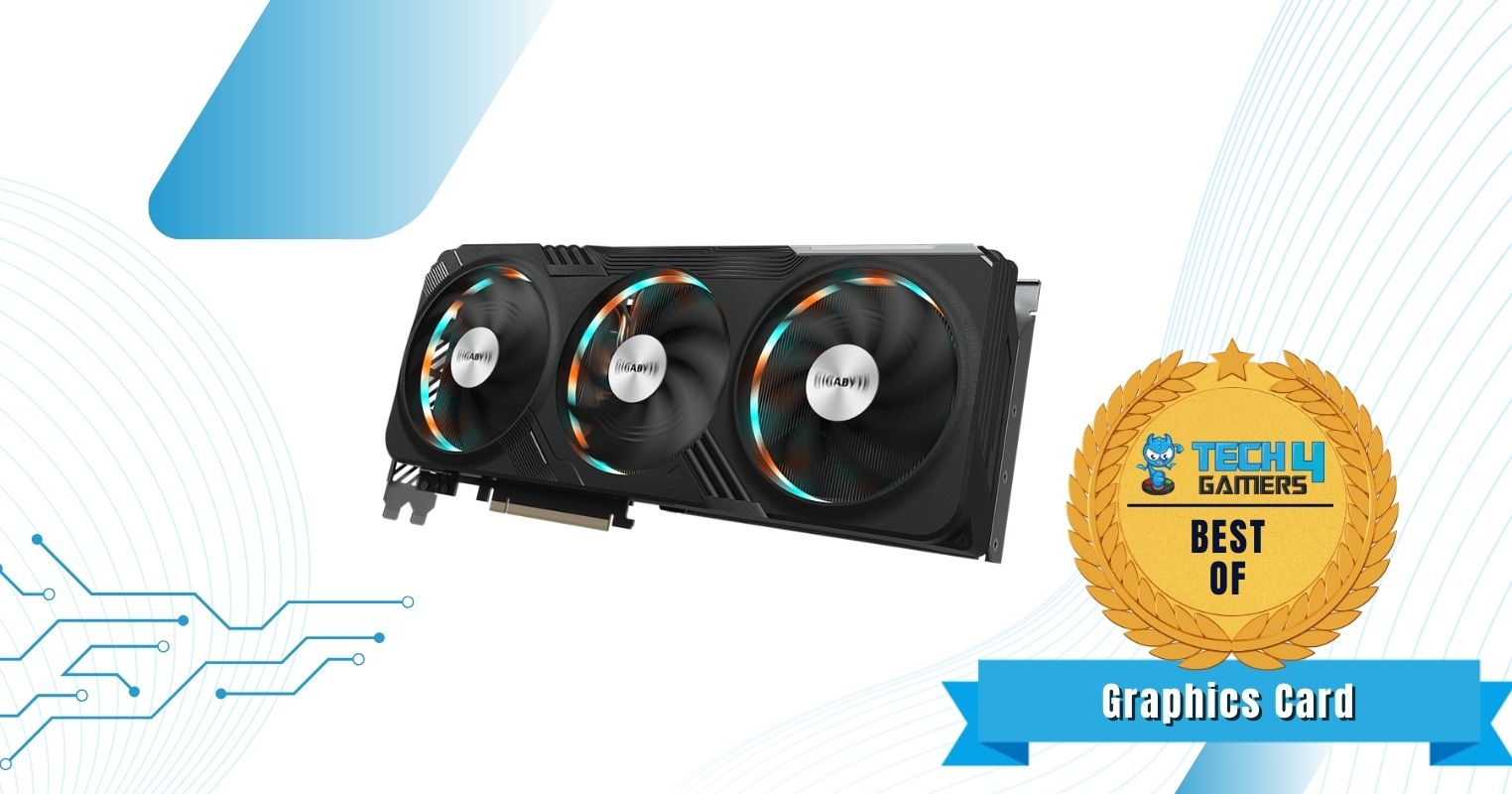
Specifications: Dimensions: 336 x 140 x 58mm | Video Memory: 12GB GDDR6X | CUDA Cores: 7,680 | Base Clock: 2,310MHz | Boost Clock: 2,640MHz | Power Connectors: 1x 16-pin | RGB: Yes | Display Outputs: 1x HDMI 2.1, 3x DisplayPort 1.4a | Recommended PSU: 750W
Pros
- Insane gaming performance
- Gorgeous looks
- Decent DLSS & RTX performance
- Lower thermals at full load
- Decent 12GB VRAM
Cons
- Slightly expensive
- Higher power consumption
- Size and length issues
Moving to one of the most important components in a gaming PC, the graphics card, I left around half of the budget aside for a decent GPU, which is how I ended up with the Gigabyte RTX 4070 Ti Gaming OC. Not only is this GPU capable of hitting 120Hz at 1440p, but it can also provide decent entry-level 4K gaming performance.
Thanks to its 2,640MHz boost clocks and greater 12GB VRAM, the GPU had no problems running most AAA-titled games in my tests at 1440p resolution 120Hz with varied settings. You can also attempt to overclock the GPU and increase the boost clocks slightly. However, the GPU comes with a factory overclock, so you don’t need to go through the trouble.
Even so, if you’re looking for that slight extra performance, manual overclocking will keep you happy. Furthermore, the GPU’s RGB fans complement the rest of the PC build, making it a decent choice for a $2000 gaming PC.
Corsair RM850x SHIFT
Best $2000 Gaming PC Build Power Supply
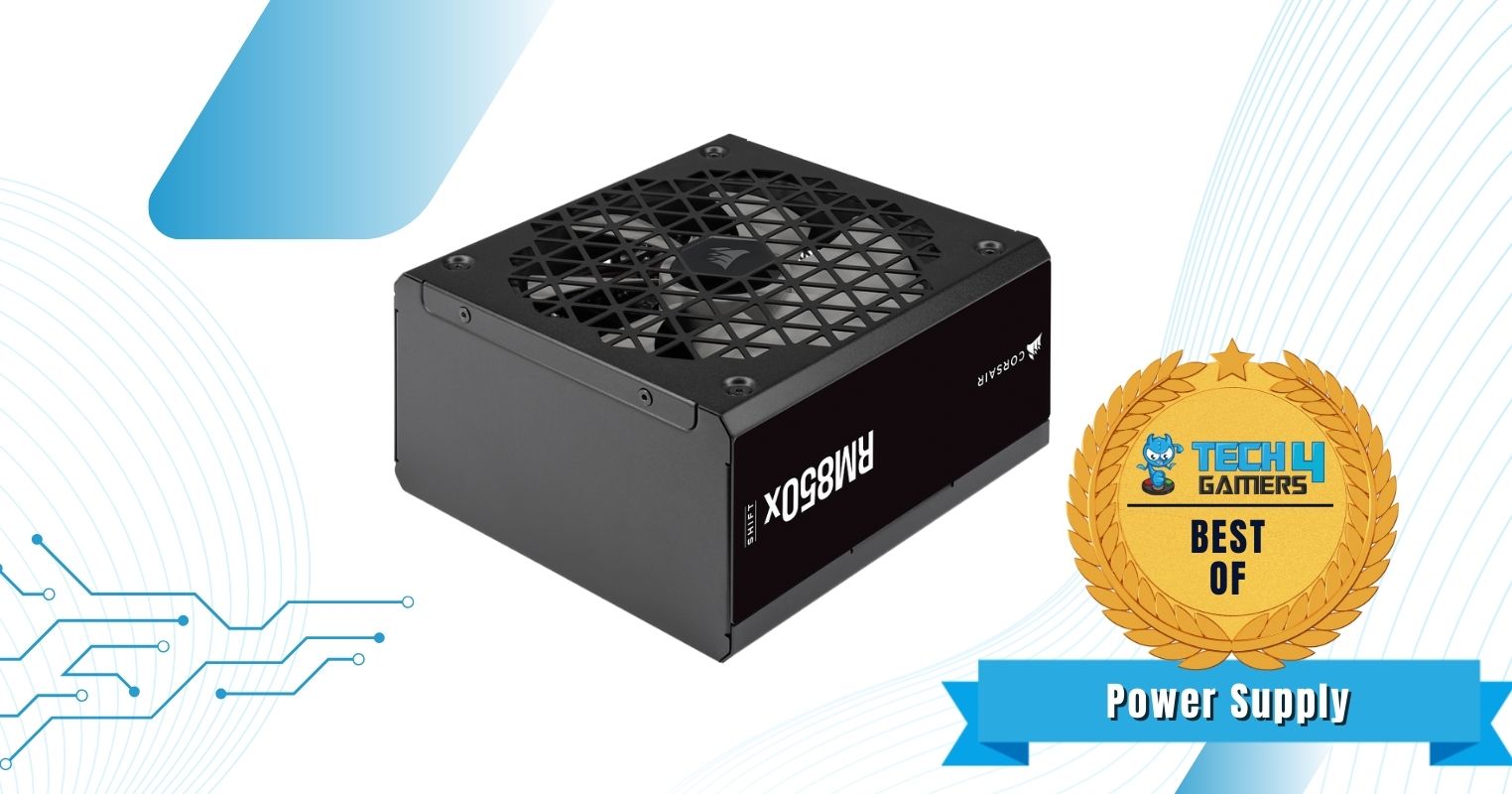
Specifications: Size: 160 x 150 x 129mm | Efficiency Rating: 80+ Gold | Modular: Yes (Fully) | Wattage: 850W | ATX 24-Pin: 1 | EPS 4+4-Pin: 2 | PCI-E 5.0 16-Pin: 4 | SATA: 12 | PATA 4-Pin: 8
Pros
- Higher performance
- Sturdy build quality
- Fully modular
- Decent 80+ Gold efficiency rating
Cons
- Expensive
Seeing as how I planned to install the Ryzen 7 7800X3D and RTX 4070 Ti GPU, I decided to go with a higher-wattage power supply to ensure enough wattage in the PC. Therefore, I went with the Corsair RM850x SHIFT 80+ Gold, which provides more than enough power and is more efficient.
Other than its wattage, the power supply also supports a greater number of SATA drives, ensuring you don’t face any issues if you’re planning on running a mini-server. The full modularity will also help keep the PC build clean with lower cable clutter and an easier installation process.
Corsair 4000D Airflow
Best $2000 Gaming PC Build Case
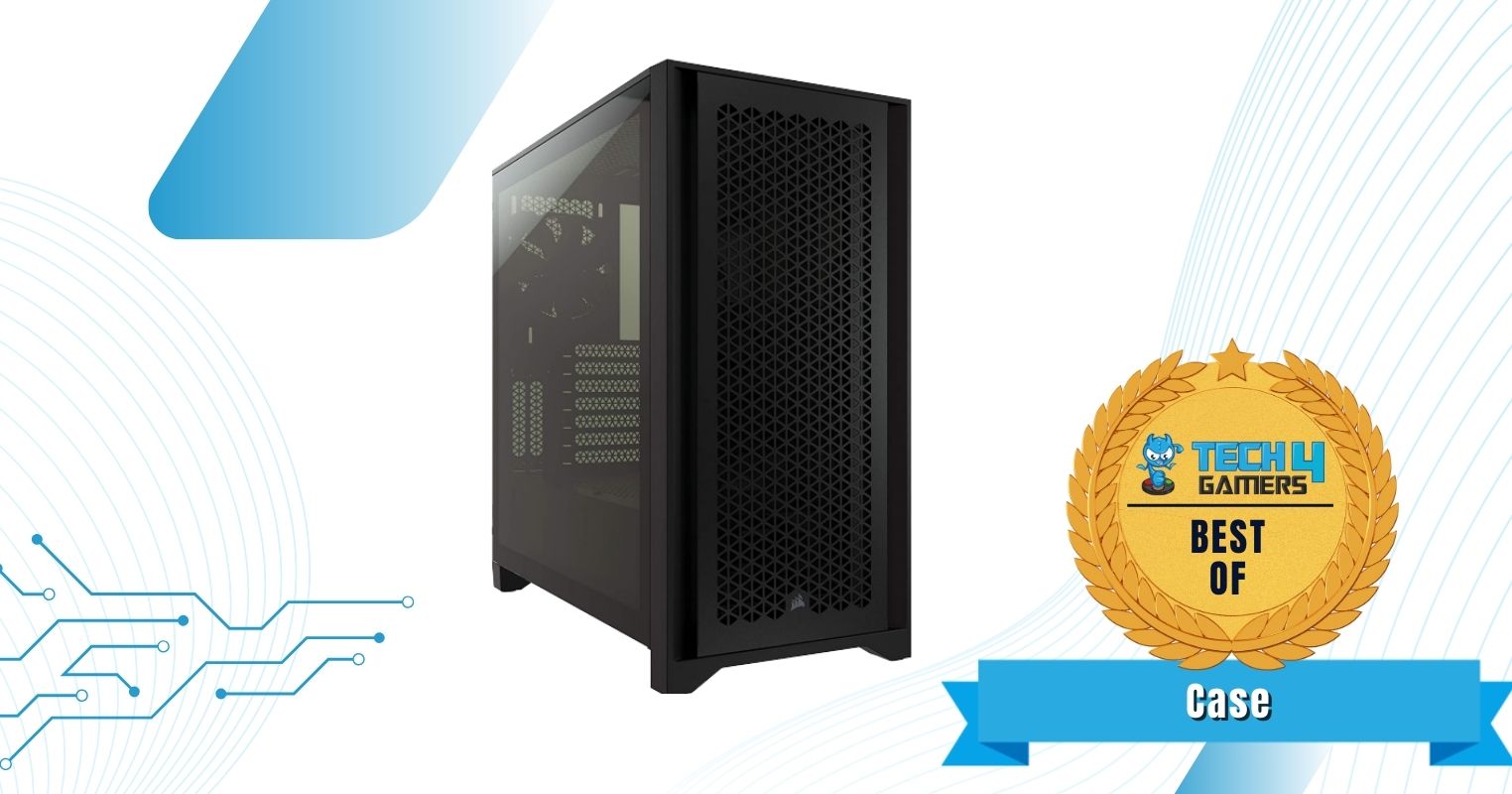
Specifications: Type: Mid-Tower ATX | Colors: Black, White | Motherboard Support: Mini-ITX, Micro-ATX, ATX, E-ATX | Dimensions: 453 x 230 x 466mm | GPU Clearance: 360mm | PSU Clearance: 220mm | CPU Cooler Clearance: 170mm | Drive Bays: 2x 3.5″ HDDs, 2x 2.5″ SSDs
Pros
- Good SSD support
- Excellent airflow capabilities
- Decent value for money
- Sleek design
Cons
- Only two pre-installed fans
- Limited space for larger air coolers
Lastly, talking about the PC case, you want a chassis that provides better airflow capabilities with more space for better customization. That’s why I decided to go with the Corsair 4000D Airflow. Not only does the PC case offer better airflow but it can also support up to an E-ATX motherboard with the longest GPUs out there.
To explain, thanks to its front mesh panel, the Corsair 4000D Airflow directs more air into the chassis with 3x 120mm in-take fans. Similarly, whether it’s good cable management support or sleek looks, the chassis has got it all, and considering its price tag, it fits with the rest of the $2000 gaming rig we are building.
However, the only thing I disliked was the drive bay compatibility of the PC case. If Corsair had added more slots for HDDs and SSDs, then the PC case could have been a perfect choice for every gamer out there. Otherwise, there are no issues.
Our Gaming Benchmarks
To back our claims, we put this extreme $2000 gaming PC build to the test in various games, and it delivered smooth and immersive gameplay experiences without any issues. Take a look at the average frame rates below to see what we mean:
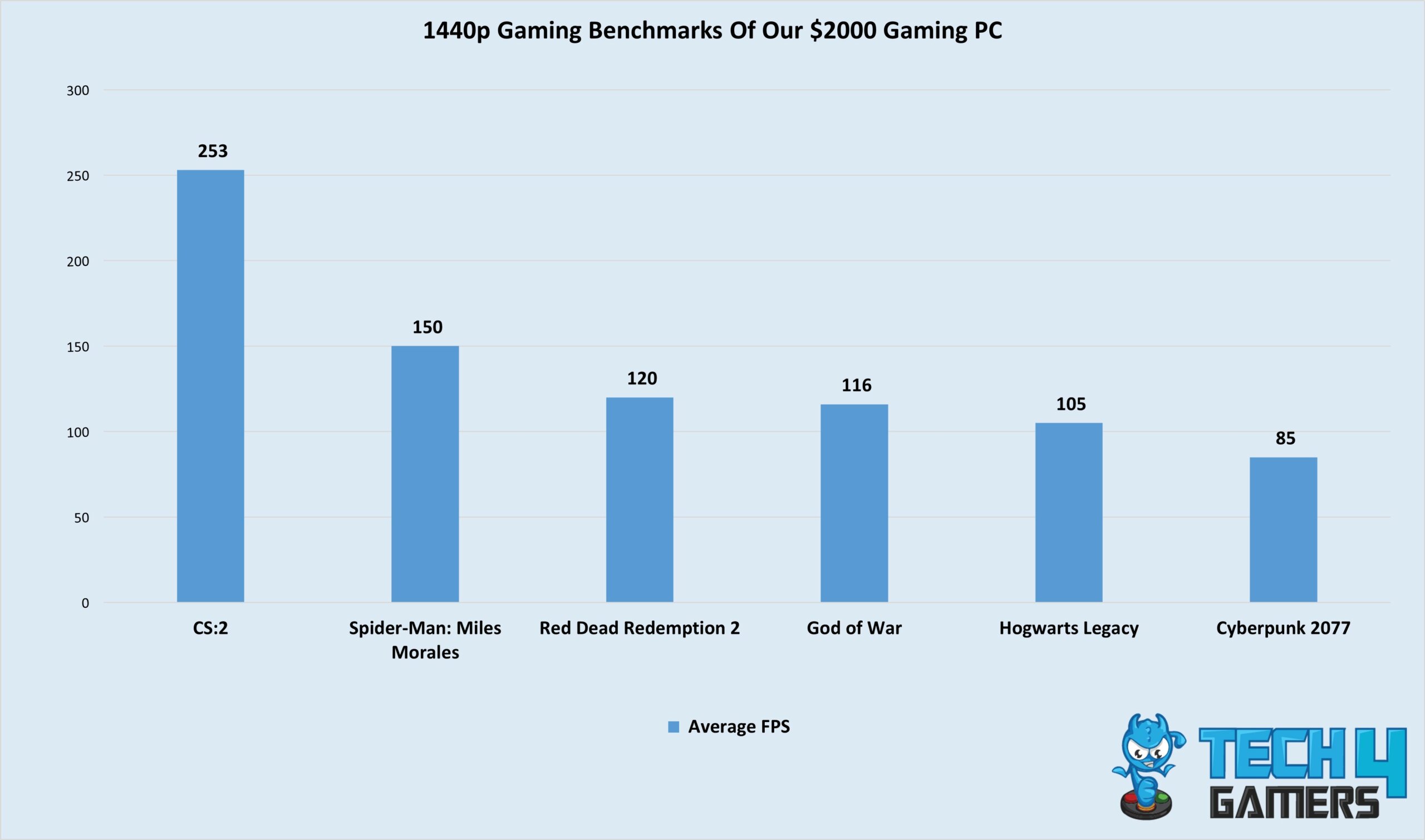
As you can see, the PC is nailing in gaming benchmarks. Hence, if you’re a high-performance gamer looking for a reliable and capable gaming rig, this is for you.
Monitor, Peripherals, And Other Expenses
Now that you have a complete list of all the components necessary to build a $2000 gaming PC, you might also be looking for peripherals, a monitor, and more. Before you jump ahead and purchase the first good-looking monitor you come across, you should think about the kind of gaming and work you expect from your PC.
For instance, my rig is capable of 4K gaming. However, do you plan to game on 4K or stay at 1440p? Because if you plan to game on 4K, you’ll need a 4K monitor, and they don’t come cheap. Furthermore, you must decide the refresh rate. I recommend at least 120Hz for casual gaming and 240Hz for competitive gaming.
There is one more expense you need to factor in when you’re building a gaming PC: the Windows license. Although a Windows 11 license key is affordable when compared to how much you have spent on a PC. Otherwise, you can stay on your older PC’s Windows if you still have the license key.
Also Read: How To Update Windows
How To Plan The Best $2000 Gaming PC Build
Building a gaming PC is not a difficult task. However, you still need proper guidance to ensure you don’t damage any component, especially since all your parts are for a $2000 gaming PC. Here’s my short list of factors you must consider before you start building:
- Budget: Even though a $2000 budget is hefty, you must keep every component’s price in mind. By that, I mean that despite having a high budget, you can still risk overspending on a single component, and if that happens, you will have to cheap out on some other component to compensate for it.
- Upgradability: PC gaming rigs have an edge over consoles in terms of upgradeability; you can swap out a particular component with a newer variant and get a performance boost. However, all of this is only possible when your PC supports upgradability, and to achieve that, you need to go after compatible components.
- Performance: You must keep the performance you want in mind when building your PC. While you should focus on getting the most performance on a certain budget, it’s not always that simple. For instance, video editors need different components to achieve their performance target, while gamers focus on others.
- Aesthetics: This factor is quite subjective and depends on your preference. If you are a fan of RGB or visually appealing gaming PCs, you will have to go with the components that look good and go along with each other in terms of aesthetics. Or you can do a white PC build or a darker stealth build.
Tools Required
If you have decided to go down the custom gaming PC route and plan on building on your rig, then make sure you have these tools to get started:
- Thermal Paste: It is one of the most important components to keep your CPU cool. You must install the thermal paste on the processor before installing the CPU cooler.
- Philips & Standard Flathead Screwdriver: These are important to screw in all the different nuts and bolts in the PC during installation.
- Anti-Static Mat: An anti-static mat will come in handy to prevent electric discharges from your body from ruining any of your hard-earned PC components.
- Zip Ties: Using zip ties in a PC build can help keep the installation process easy and improve the aesthetics of your PC.
- Magnetic Screw Tray: It’s an important asset to keep all the screws in one place without misplacing them.
- Knife: A knife can help reduce the PC building time when you’ll be unboxing all the PC components.
Gaming PC Build Tips
If you don’t have any experience with building gaming PCs, then here are a few tips for you:
- Call a friend with experience: If you have a friend who has built a custom gaming PC, then we recommend you call him over; this way, you can build your rig with your friend and have less risk of making any mistakes.
- Always build the computer on a suitable surface: Make sure the surface you are building on is flat and not uneven.
- Stay organized: The key to a successful PC build is organization; keep everything neat and clean throughout the process. Staying organized will also help you in keeping track of all the screws and nuts.
- Always ground yourself: Always ground yourself before you start working on electrical components. You can do so by wearing an anti-static band. Furthermore, you can also work on an anti-static mat to protect your components from getting static electricity.
- Apply the correct amount of thermal paste: Never apply too much or too little, as an inadequate amount of paste can cause overheating issues.
- Correct fan configuration: Always install the right amount of fans for good airflow. This way, your rig will be properly ventilated, and none of your components will overheat.
- Always keep an eye on the thermals: Don’t forget to monitor the thermals and the performance of your rig after building it. You can use software like MSI Afterburner to monitor your PC’s stats.
For more important tips, read our guide on PC building mistakes to avoid, especially if it’s your first time building a PC.
Community Poll
FAQs
Yes, you can build a high-end gaming rig for $2000. You can even build a gaming PC for $1000.
Yes. As was evident in the gaming benchmarks, the $2000 Gaming PC we built can easily handle 1440p gaming with high framerates.
Yes, the RTX 4070 Ti is a very powerful GPU; it will have no issues running games at 4K resolution.
Recent Updates
- March 23, 2024: To keep the PC build’s budget within range, I replaced the Sabrent Rocket 4 Plus 2TB NVMe M.2 SSD with the TEAMGROUP MP44 2TB NVMe M.2 SSD because the latter’s price is significantly lower without having a major decrease in read and write speeds. Similarly, I decided to swap out the ARCTIC Liquid Freezer II 240 A-RGB with the ARCTIC Liquid Freezer III 360 A-RGB after testing its thermal performance on my testing rig.
- March 11, 2024: Bringing a few major changes, I switched out the Intel Core i5-13600KF with the significantly stronger AMD Ryzen 7 7800X3D due to similar pricing but a major performance difference in my testing. Of course, I had to change the motherboard, too, so I removed the MSI PRO Z790-A WiFi and added the MSI MAG B650 Tomahawk WiFi, as the CPU doesn’t need a high-end motherboard.
- March 4, 2024: I opted to replace the ASUS TUF Gaming RTX 4070 Ti OC with the Gigabyte RTX 4070 Ti Gaming OC due to a slight price difference, improving the latter’s overall value without changing the performance. Along with that, I changed the Be Quiet! Dark Power 13 750W with the Corsair RM850x SHIFT as it provides greater wattage with a robust build quality.
Thank you! Please share your positive feedback. 🔋
How could we improve this post? Please Help us. 😔
Feedback By:
Ronnie Alvin
[Hardware Expert]
With a major in Computer Science, Sameed is a tech enthusiast who puts his passion for gadgets into words and creates informative blogs. From comparing different hardware to reviewing the best RAMs, motherboards, and graphics cards for your next build, Sameed has covered a wide spectrum of topics that have given him a special insight into every nook and cranny of the tech world. Sameed is also a certified expert at Computer Hardware & Networking.
Get In Touch: sameed@tech4gamers.com


 Threads
Threads![The Best Gaming PC Under $500 [With FPS Results] Best Gaming PC Under $500](https://tech4gamers.com/wp-content/uploads/2023/05/Best-Gaming-PC-Under-500-218x150.jpg)

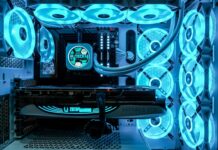
![This Is The Best Gaming PC Under $5000 [Hands-On Tested] ASUS ROG Maximus Z790 HERO](https://tech4gamers.com/wp-content/uploads/2023/07/Best-Gaming-PC-Under-5000-218x150.jpg)
